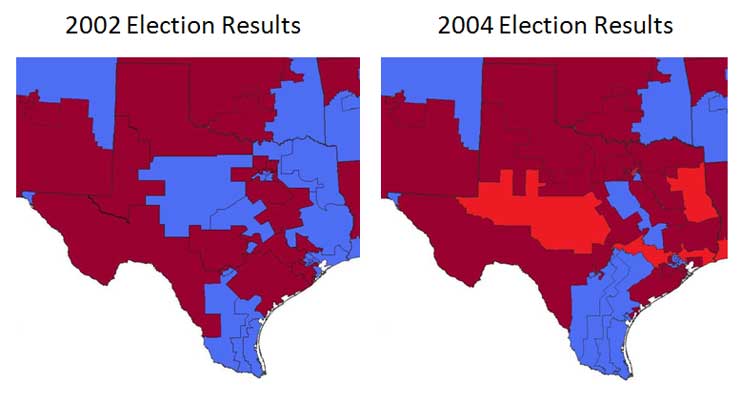
Following a election year when almost every subject in the United States has become hyperpolarized, the post-election season has not disappointed, with the subject of gerrymandering districts in Texas becoming the latest subject to become partisan.
“We really have a lot of lawyers scratching their heads about what the court is actually doing, if anything, to get this case moving,” said lawyer, Gerry Herbert. Herbert is one of the lawyers is one of the plaintiff attorneys in Texas, in favor of re-drawing the maps before the 2017 Texas state elections and the 2018 mid-term elections.
The changes in Texas have become a highly politicized one as the Republicans usually favor the issue of redistricting and Democrats usually opposing it as usually disadvantages them as a party.
The process began in Texas in 2011, when the Republican majority in the congress began to re-draw the congressional districts, a process also known as gerrymandering. However, with that process, the Democrats in the state began to take the process to the courts which for most the rulings, ruled that the re-drawings disadvantaged minority groups in the state.
In one such ruling, a three judge panel in San Antonino, ruled that the re-redistricting unfairly targeted the minority population. “The evidence of the map drawing process supports the conclusion that map drawers were motivated by an intent to dilute minority voting strengths,” a final opinion written by two of the judges who are against the re-redistricting.
Two of the areas involved in the ruling include, Dallas (for a House of Representatives district), and Tarrant County.
The battle for the court redistricting immediately went to the Texas high court and it has been in limbo since 2011. U.S District judges, Xavier Rodriguez and Orlando Garcia provided the dissenting opinion in the court’s ruling.
District rulings for the court also said recently that the voter id laws that were passed also “intended to discriminate.”
Texas has been one of the battleground states when it comes to post-election ideological differences between Democrats and Republicans as to how elections should be run. This will be another battle in the possible creation of the new districts.
Other counties involved in the re-redistricting process include El Paso, Harris, and Bexar Counties. The court ruling also said that the process diluted minority votes in those counties.
“As 5th Circuit Judge Jerry Smith observed in his dissent, the challenge to the old 2011 maps are not only moot but a finding that racial considerations were dominant and controlling defies everything about this record,” said Marc Rylander a spokesman for the Texas Attorney General. Governor Greg Abbott’s administration has been in favor of the redistricting plan.
Ultimately, congressional districts should be redrawn every several years for legitimate purposes but if it is done to restrict a person and or group’s voting rights and participation then it should be able to be challenged by properly designed processes. This doesn’t seem the case today.
Links to sources:
- Dallas News: https://www.dallasnews.com/news/texas-legislature/2017/04/20/federal-court-rules-texas-house-map-drawn-intentionally-dilute-minority-votes
- Ballotpedia Texas Election Dates: https://ballotpedia.org/Texas_elections,_2017
- KUT Link: https://kut.org/post/attorneys-say-texas-might-have-new-congressional-districts-2018-election
Leave a Reply